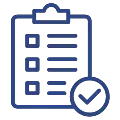In today’s fast-paced and interconnected global economy, the need for standardized and efficient communication in procurement and e-invoicing is more critical than ever. The Universal Business Language (UBL) stands out as a transformative solution designed to streamline transactions, enhance transparency, and ensure compliance across borders. UBL addresses the complexities of digital procurement by providing a consistent and interoperable framework for business documents, particularly within Europe, where the demand for efficient e-invoicing solutions continues to grow.
As regulatory mandates and the push for digital transformation intensify, businesses are seeking robust solutions to keep pace with evolving standards. UBL emerges as a key player in this arena, facilitating a unified approach to e-invoicing and procurement processes.
Understanding Universal Business Language (UBL)

What is UBL?
Universal Business Language (UBL) is an open, XML-based standard for business documents. It was developed by the Organization for the Advancement of Structured Information Standards (OASIS) to provide a universally understood language for electronic commerce. UBL standardizes the format and structure of various business documents, including invoices, purchase orders, and shipping notices.
Core Components of UBL
UBL comprises various document schemas, each serving a specific purpose within the business transaction process. Here are some of the core components:
Invoice
- The UBL invoice schema standardizes the format and structure of electronic invoices, ensuring that all necessary information is included and consistently presented.
Credit Note
- The UBL credit note schema provides a standardized format for documents that indicate a reduction in the amount owed by the buyer.
Receipt Advice
- This schema provides a standardized format for acknowledging the receipt of goods, ensuring accurate record-keeping.
Purchase Order
- This schema defines the structure of purchase orders, facilitating the standardized exchange of order information between buyers and suppliers.
Despatch Advice
- This schema standardizes the format for shipping documents, streamlining logistics and supply chain management.
Catalogue
- The UBL catalogue schema standardizes product and service listings, enabling efficient sharing of item details between trading partners.
Conclusion
Universal Business Language (UBL) is a cornerstone of digital procurement and e-invoicing in Europe. By providing a standardized and interoperable framework for business documents, UBL enhances efficiency, reduces costs, and ensures compliance with regulatory mandates. For businesses looking to adopt UBL, understanding its basics and addressing the associated challenges is crucial for successful implementation.
Smartbooqing offers a robust solution for businesses aiming to adopt UBL. With its SmartUBL integration, Smartbooqing automates the processing of UBL-compliant documents, ensuring adherence to regulatory standards and streamlining financial operations. By leveraging Smartbooqing, businesses can confidently navigate the complexities of UBL adoption, enhance their operational efficiency, and achieve compliance with ease.
Embracing UBL with the help of Smartbooqing is not just a strategic move; it’s a transformative step towards a more efficient, transparent, and compliant procurement process in the digital age.








